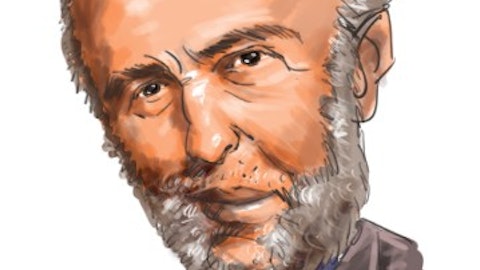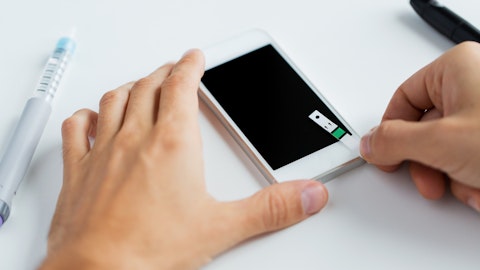The problem with being at the top of one of the largest healthcare market niches in the world is extremely heightened expectations. The World Health Organization (WHO) estimates that the annual cost of diabetes to the world is $827 billion. That’s nearly one trillion dollars, every year, year in year out.
To be on the receiving end of some of that cost is obviously rewarding, and being the market leader even more so. But Novo Nordisk A/S (ADR) (NYSE:NVO), a – if not the – current market leader in diabetes, managed to disappoint investors despite beating on earnings, just because forward guidance wasn’t as stellar as the most bullish forecasts had hoped.
The stock has collapsed 16% since Thursday, quite a huge move for a megacap, especially one with an earnings beat.
But besides the Danish giant’s lackluster earnings headlines, there is something much more consequential bubbling under the surface than slightly lower forward guidance. Novo’s biggest bestseller is by far its injectible insulin product NovoLog. Combining all permutations of the drug including NovoRapid and NovoMix, sales amounted to almost DKK 32 billion, or $4.75 billion. As long as diabetes incidence continues to rise, and it has been as global sugar intake rises the world over, sales of injectible insulin will keep rising basically until national taxpayer-funded insurance schemes go broke. That is, unless a new and better formulation is finally developed. If an oral formulation is brought to market and is good enough to at least supplement subcutaneous insulin if not replace it, there could be some major shakeups.

bikeriderlondon/Shutterstock.com
This hasn’t happened, ever, for nearly 100 years since the advent of injectible insulin. No company has yet succeeded in formulating an oral insulin that can be readily absorbed through the small intestine. Currently though, there are 6 clinical trials ongoing on oral insulin formulations, and three of them have seen some success through Phase II. It isn’t surprising to find out that Novo itself is behind 3 of these 6 trials, though like many of its sister companies in the past, the diabetes behemoth has discontinued trials on two of three of its own candidates for reasons unknown.
Getting reliable information as to how these oral insulin formulations work is also quite the daunting task. Oral insulin is considered the “Holy Grail” of the diabetes market and no one has found it in nearly a century. The good news though is that Novo may finally be on to something as it has reported “generally encouraging” results for its oral insulin formulation so far. There isn’t much more information than that out there, and Novo insists that more data will be available during the second half of this year.
The entire effort, however, raises some serious questions. The most obvious being, assuming that Novo Nordisk succeeds in its oral insulin formulation, wouldn’t that doom its own injectible bestsellers, or at least make a big dent in its own sales? Could this be at least partly why two previous Novo oral insulin trials were suspended? At the very best, sales would be cannibalized, and at the very worst, if successful, eventually generic or biosimilar versions would become available even if that’s 10 years from now, and Novo’s entire business model based on injectible insulin would have to shift. That is a much more serious impact than slightly lower forward guidance that has already smashed the stock 16% in a few days.
From the conservative and probably more realistic perspective, oral insulin will probably not replace injectible immediately, if ever in the foreseeable future. If successful, it will probably be mostly a supplemental therapy, but even so could still bring down global injectible sales significantly.
The other major question is how does oral insulin supposedly work? If it hasn’t succeeded in nearly 100 years, what has suddenly changed? What has Novo finally figured out that has taken so very, very long? This is the most frustrating part for investors, because nobody wants to answer that question. The companies behind these formulations are extremely tight-lipped possibly because they know they are on to something. Our research into this arena though has shed a tiny bit of light onto the subject.
Follow Novo Nordisk A S (NYSE:NVO)
Follow Novo Nordisk A S (NYSE:NVO)
Receive real-time insider trading and news alerts





